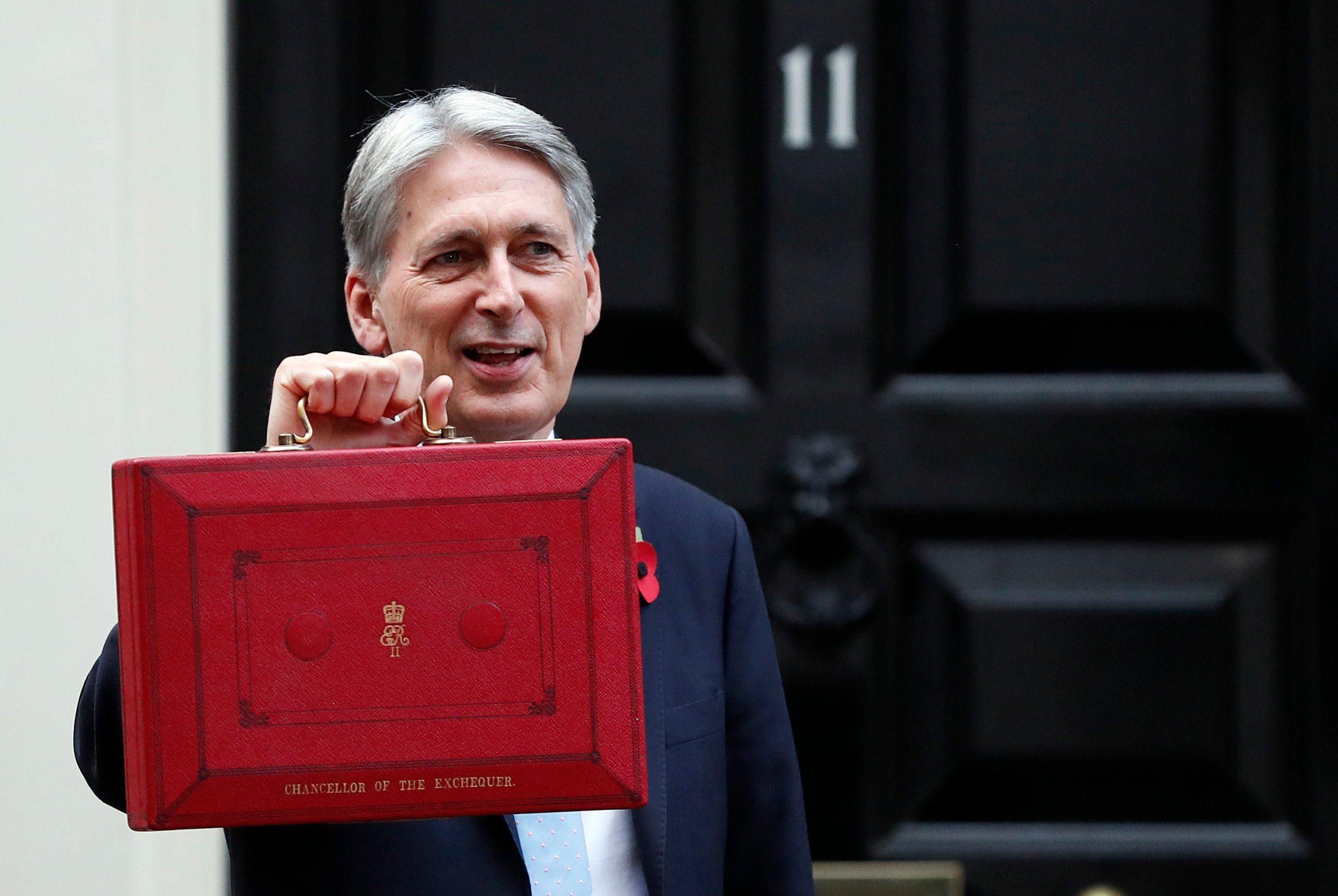The IFS is right – Philip Hammond took a big gamble with the economy in his Budget
If there is hard Brexit, a chaotic situation that will inflict unprecedented damage on the economy, the public spending increases and tax rises will not be reversed in the short term simply because the economy will require life support

Your support helps us to tell the story
From reproductive rights to climate change to Big Tech, The Independent is on the ground when the story is developing. Whether it's investigating the financials of Elon Musk's pro-Trump PAC or producing our latest documentary, 'The A Word', which shines a light on the American women fighting for reproductive rights, we know how important it is to parse out the facts from the messaging.
At such a critical moment in US history, we need reporters on the ground. Your donation allows us to keep sending journalists to speak to both sides of the story.
The Independent is trusted by Americans across the entire political spectrum. And unlike many other quality news outlets, we choose not to lock Americans out of our reporting and analysis with paywalls. We believe quality journalism should be available to everyone, paid for by those who can afford it.
Your support makes all the difference.According to the Institute for Fiscal Studies (IFS), a respected independent think tank, the chancellor is taking a “gamble” with the public finances. It points out that the very adjustments to forecasting made by the Office for Budget Responsibility, which happily gave him some extra room for manoeuvre in his Budget, could be reversed. Indeed, they calculated a one in three chance of things taking a turn for the worse next year, even with a smooth Brexit (if that’s not a contradiction in terms).
If growth suddenly subsides or employment and tax revenues prove less robust than they have been recently, the IFS asks what the chancellor is most likely to try to do about the shortfall. As it argues, this minority government would find it difficult to push tax rises through parliament having only just announced reductions. Ministers would be equally reluctant to make cuts to public services, having announced either the end of austerity (Theresa May) or that the “era of austerity is at last finally coming to an end” (Philip Hammond). That leaves the Treasury with only one alternative – to borrow more.
The consequences of higher borrowing are well known – because Mr Hammond himself and his predecessor, George Osborne, warned about them so often over the past decade. Mr Hammond is right to say that the annual budget deficit is far below the 10 per cent of national income it peaked at towards the end of the last Labour government; yet the overall level of national debt is about half as much again as it was before the financial crisis – 80 per cent to national income, and high by recent historical British standards.
So the gamble has been taken, and it is a curious one, and made potentially trickier to escape from because Number 10 has pledged that the public spending rises, concentrated almost entirely on the NHS, will proceed whatever happens with Brexit.
If there is hard Brexit, a chaotic situation that will inflict unprecedented damage on the economy, the public spending increases and tax rises will not be reversed in the short term simply because the economy will require life support. In the longer run, however, the public finances will need to be repaired, just as the government argued in the aftermath of the financial crisis. At some point over the next couple of years the tax giveaway announced with such good humour by Mr Hammond will need to be clawed back by him or his successor. If so, it will be, to borrow a phrase, that Mr Hammond chose not to fix the roof while the sun was shining.
By that juncture, though, the government will be so unpopular for allowing Brexit to become such a debacle that it probably wouldn’t make much difference to its reputation.
The analysis of the distributional impact of the Budget also makes for uncomfortable reading. For there is a marked increase in the intergenerational divide inherent in the Budget measures. For example, a wealthy pensioner, fortunate enough to be able to enjoy an income of say, £50,000 a year, will see their income rise by around £1,000 per year over the next two years. By contrast, a working-age single person, on the income of £25,000 and more likely to be younger, will see a rise in income as a result of the Budget measures of just £240 a year.
The real gamble then is of course, Brexit. Whatever happens next spring, Britain will have less money to spend and invest than it would if it had remained in the EU. It is a simple fact that the Treasury’s own impact assessments make perfectly clear. For some reason the chancellor has chosen not to mention them in recent days.
Join our commenting forum
Join thought-provoking conversations, follow other Independent readers and see their replies
Comments